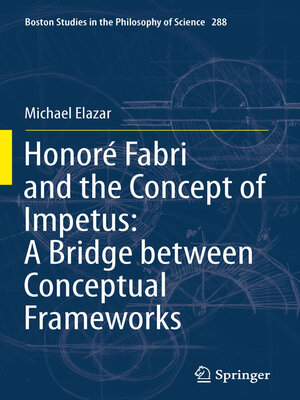Honoré Fabri and the Concept of Impetus
ebook ∣ A Bridge between Conceptual Frameworks · Boston Studies in the Philosophy and History of Science
By Michael Elazar

Sign up to save your library
With an OverDrive account, you can save your favorite libraries for at-a-glance information about availability. Find out more about OverDrive accounts.
Find this title in Libby, the library reading app by OverDrive.



Search for a digital library with this title
Title found at these libraries:
| Library Name | Distance |
|---|---|
| Loading... |
This book discusses the impetus-based physics of the Jesuit natural philosopher and mathematician Honoré Fabri (1608-1688), a senior representative of Jesuit scientists during the period between Galileo's death (1642) and Newton's Principia (1687). It shows how Fabri, while remaining loyal to a general Aristotelian outlook, managed to reinterpret the old concept of "impetus" in such a way as to assimilate into his physics building blocks of modern science, like Galileo's law of fall and Descartes' principle of inertia. This account of Fabri's theory is a novel one, since his physics is commonly considered as a dogmatic rejection of the New Science, not essentially different from the medieval impetus theory. This book shows how New Science principles were taught in Jesuit Colleges in the 1640s, thus depicting the sophisticated manner in which new ideas were settling within the lion's den of Catholic education.







